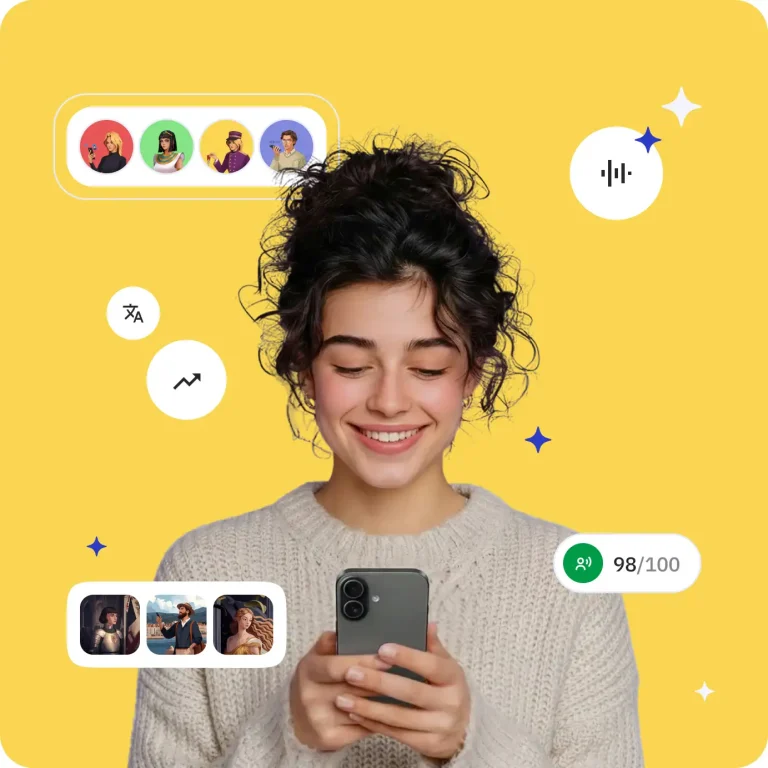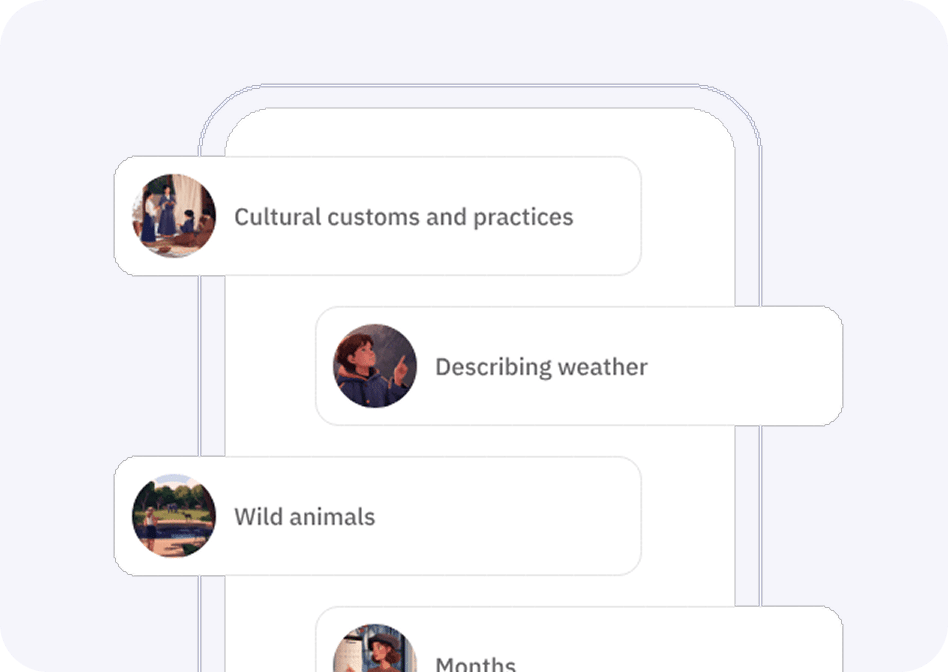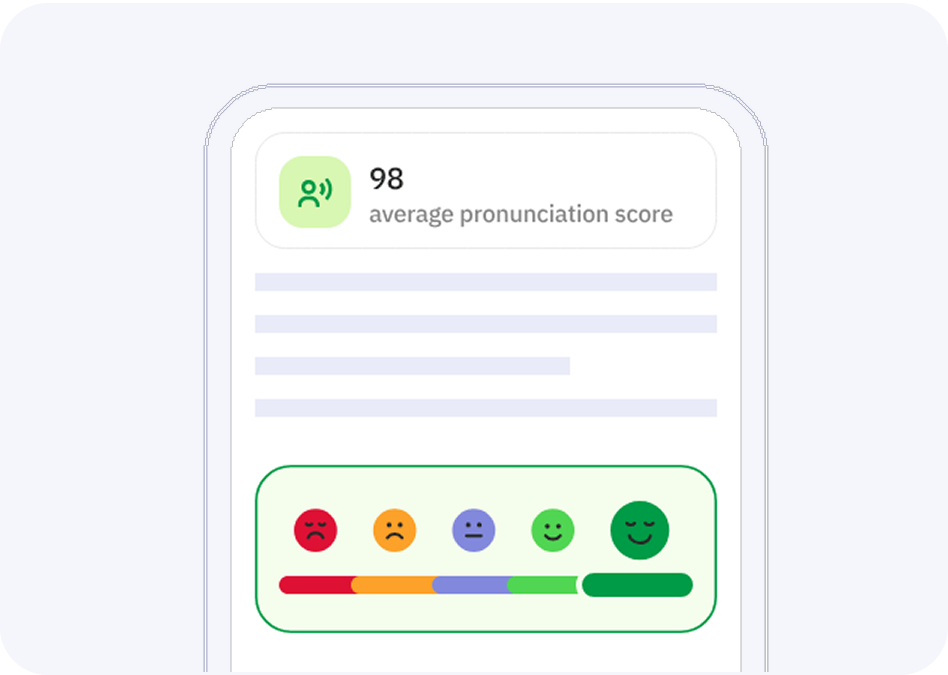English Slangs
Hey there, language aficionados and curious minds! Ever found yourself scratching your head when you hear phrases like “spill the beans” or “hit the sack”? These oddball expressions are part of the fascinating world of English slang – the informal words and phrases that pepper conversations from the busy streets of New York to the sun-soaked beaches of Australia. In this friendly chat, let’s unravel the mysteries of English slang, shall we? First off, why the buzz about slang? Well, it’s simple – slang is the secret sauce that can transform your language skills from textbook-tidy to sounding like a bona fide native speaker. Fancy that! Plus, understanding slang is like holding a golden key to the culture and humor behind the English language.

The talkpal difference

Personalized Education
Every student has a distinct approach to acquiring knowledge. Through Talkpal technology, we analyze the study patterns of millions simultaneously to build highly effective educational environments that adapt specifically to individual needs. This ensures your journey is fully customized based on your interests and goals rather than a generic curriculum.

Cutting-Edge Technology
Our central mission is to lead the way in providing universal access to a tailored learning journey. By utilizing the most recent breakthroughs in artificial intelligence and modern software, we ensure that everyone can benefit from a sophisticated and personalized educational experience.

Making Learning Fun
We have transformed the study process into a delightful activity. Staying motivated while learning online can often be a struggle, so we designed Talkpal to be incredibly captivating. The platform is so engaging that users frequently prefer mastering new language skills over playing video games.
LANGUAGE LEARNING EXCELLENCE
The most efficient way to learn a language
Try Talkpal for freeEnglish Slangs
The Origins of English Slang
Slang is the language’s rebellious child, often born in the alleys of innovation and creativity. It originates from various subcultures, street language, and even the fascinating universe of online chatrooms and social media. The influence comes from everywhere – from the gritty rap lyrics to the catchy wordplay in TV shows. It’s like a linguistic melting pot, each scoop flavored with history and contemporary trends.
Now, let’s get down to the fun stuff – the slang itself!
Cool Slang to Jazz Up Your Vocab
1. “Chill out” – Relax, don’t worry! “After a long week of work, it’s time to chill out with friends.”
2. “Ghosting” – Suddenly cutting off communication with someone. “We went on two dates, and then he just ghosted me.”
3. “Savage” – Ruthless but also can mean awesome. “Did you see that comeback? That was savage!”
4. “Throw shade” – To give someone a dirty look or talk about them negatively. “I’m not one to throw shade, but that was not her best performance.”
5. “On fleek” – Perfectly executed or looking good. “This new haircut is on fleek!”
6. “Crash” – To go to sleep or attend something without an invitation. “Can I crash at your place tonight?”
7. “No-brainer” – Something very easy or obvious. “Choosing to go to the beach on a sunny day was a no-brainer.”
8. “Flex” – To show off. “He’s always flexing his new designer clothes.”
Now, you might be wondering, “Aren’t these just American slangs?” And you’re spot on, my friend! But English slang doesn’t just stop at the American borders. It hops across the pond and beyond!
British Banter and Aussie Fun
Brits have their own cheeky way with words. Here’s a scoop of British slang for you:
– “Cheeky” – Playfully disrespectful or audacious. “Fancy a cheeky pint after work?”
– “Gutted” – Extremely disappointed. “He was gutted when his team lost the match.”
– “Knees up” – A lively party. “We’re having a knees up for her birthday this weekend.”
And let’s not forget our mates from Down Under. Australian slang can be as entertaining as a barbie with the neighbors:
– “Arvo” – Afternoon. “See you this arvo for some footy?”
– “Hard yakka” – Hard work. “He’s been doing the hard yakka all day.”
– “Chockers” – Very full or crowded. “The beach was chockers this morning.”
Slang in the Digital Age
With the world going digital, internet slang has surged in popularity. You’ve likely bumped into acronyms and abbreviations on social media or online chats.
– “LOL” – Laugh out loud (because, why not laugh at a good joke?)
– “BRB” – Be right back (for those moments when you need to step away from the keyboard)
– “IMO” – In my opinion (when you’ve got to share that priceless two cents of yours)
The Importance of Flexibility & Caution
Now, before you start throwing these phrases around like confetti, a word to the wise. Slang is fantastic, but it’s good to know when and with whom to use it. It can be too casual or inappropriate in certain situations, like job interviews or formal events. But hey, understanding the room is part of the fun, right?
Why English Slang Matters for Language Learners
For language learners, diving into slang is a thrilling rollercoaster ride into the heart of English-speaking societies. It’s more than just words – it’s an attitude, a gesture of friendliness, and a nod to the native speakers that you’re one of them.
Your road to slang mastery might start with feeling puzzled by odd phrases, but it’ll end with you confidently expressing everything from surprise to joy, all with a few well-placed slang terms. How cool is that?
So, next time you hear someone say, “I’m stoked about acing that test!”, flash a knowing smile. You’re in on the secret language of English slang, and your journey of language discovery just got a whole lot jazzier.
Get out there, experiment with these quirky expressions, and watch as your conversational English becomes as rich and flavorful as a linguistic master chef’s signature dish. And remember, language learning is never a one-size-fits-all – it’s a personal adventure, so make it your own and have a blast with it!
Keep it real, keep it slang, and until next time, keep absorbing that English goodness! Cheers, mates!
The most efficient way to learn a language
Try Talkpal for freeFrequently Asked Questions
What exactly is English slang and why should language learners learn it?
Where does English slang typically originate from?
Could you give examples of popular American slang words mentioned in the text?
What's special about British slang compared to American slang?
How does Australian slang differ from British and American slang?
Are there situations where slang should not be used?







